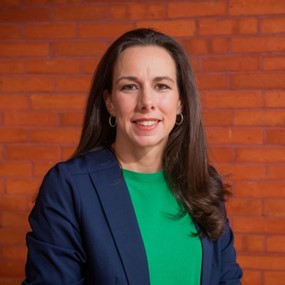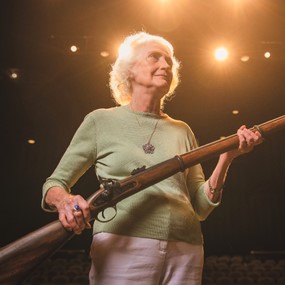Jeremy Walden brings life to communication studies

Jeremy Walden, a senior lecturer in the School of Communication and Journalism at Auburn University, is nothing short of an inspiring and uplifting teacher. His journey into communication education stems from firsthand experience with the power of effective communication in both his personal and professional life.
Believing that learning happens best through experience, Walden emphasizes active learning in his classroom, using hands-on activities and group discussions to illustrate leadership and decision-making principles.
His decade-long work in ministry and nonprofit organizations has further shaped his teaching approach, reinforcing his ability to simplify complex ideas and make a lasting impact on students. Walden was raised in a faith-based family, but after losing his father in high school, he found a father figure in his church's youth minister.
“Seeing my youth minister’s impact on my own life made me want to turn around and do the same for others,” Walden said. “I followed in his footsteps—attending the same school, earning the same degree, and pursuing the same career path.”
After completing a B.A. in Biblical Studies at Faulkner University, he worked as a youth minister for 10 years in Augusta, Georgia, and Auburn. He also started and led Mosaic Family Church for 16 years.
His passion for communication led him to earn an M.A. in Communication and Media Studies before beginning his teaching career at Auburn in 2008. He uses his teachings to connect communication concepts to students' personal lives and future careers through real-world experiences, many of which come from his own stories or those of past students.
“Becoming a youth minister, I had to learn very quickly how to teach complex ideas in a simplified way that students can understand,” Walden said. “How do I take communication concepts and theories that can be complex and try to simplify them?”
With students coming from different experiences, it is essential to create a space where they feel comfortable expressing their perspectives, even when they differ. While personal experiences are shared, the focus remains on research-based discussions rather than just personal opinions. Encouraging respectful disagreement allows for meaningful dialogue, helping students engage with new ideas while feeling heard and understood.
In his Family Communication class, divorce is the most challenging topic to talk about among students. Because people have varied experiences, and the topic is often tied to deep emotions, it can be difficult for students, especially those still processing their own family situations after moving to college. He noted that many students aspire to marriage but fear the possibility of divorce, which can make the discussion highly emotional. On the other hand, the topic that students find most engaging is marriage and dating. As college students are in that stage of life, they appreciate conversations about relationships and family dynamics.
"The topics, especially in family communication, are inherently personal. Students are constantly reflecting on their own families, the ones they grew up in, and considering the families they may want to create in the future,” Walden said. “I also think another reason they engage with the material is that I am very open about my own family, sharing stories from both my professional life and personal life. Even if students don’t share the same experiences, they find the stories relatable and appreciate that connection."
Beyond the classroom, Walden and his wife have been foster parents for over a decade, fostering 15 children and adopting three. This experience has deepened his empathy for students, recognizing that each one has a unique story.
“Fostering has shaped me as an educator by allowing me to know that all my students have a backstory that I’ll probably never know about. So, I have come to be patient and to respect diversity. I have learned to treat students as individuals with different needs, goals and learning styles and to interact with them one-on-one to help them as much as possible.”
His book, Getting the Best of You, which came out in April of 2024, reflects his belief that love, forgiveness and perseverance are more powerful than anger and division. Since so much of his teaching involves small group and family communication, common themes he teaches are also discussed in the book, such as commitment, conflict management and leadership.
Above all, Walden finds fulfillment in hearing from former students who apply communication concepts in their careers and relationships, emphasizing that success comes from choosing a path that aligns with other life goals too.
Learn more about the School of Communication and Journalism.







